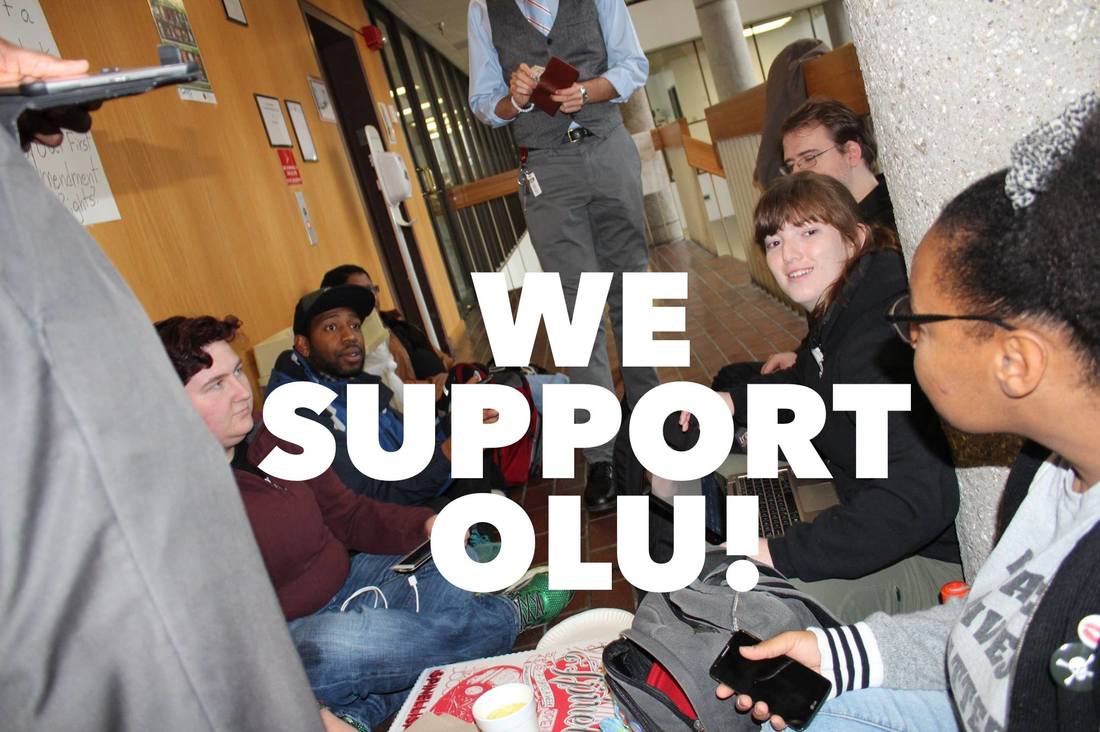|
By Robin Kunkel Code, KSEC Catalyst Summer Training Camp alum and Member of CKY Showing Up For Racial Justice  Robin at the KY Stands with Juarez - Lexmark Protest photo credit: Steve Pavey, Facebook Robin at the KY Stands with Juarez - Lexmark Protest photo credit: Steve Pavey, Facebook ‘We are what we repeatedly do. Excellence, therefore, is not an act, but a habit.’ -Aristotle I was once the activist who jumped from group to group and protest to protest, not knowing where I fit or what kind of work I should do. Honestly, I didn’t feel qualified to do anything. I don’t regret that time spent wandering around because it was part of what eventually led me to racial justice work. It was definitely not the most productive time of my life, though. Since committing myself to the work in between the protests, I’ve made learning about systemic racism part of my daily life through education, relationship-building, and A LOT of uncomfortable conversations. It’s the most difficult work I ever done, but also the most rewarding. There are so many rallies, marches, and protests lately, and just as many reasons to protest. But there also seem to be a large number of people who flood the streets for these actions and then melt away, not to be seen until the next large public event, just like I once did. While I don’t doubt the good intentions behind these appearances, I do doubt their effectiveness. I doubt our communal understanding of the what “activism” actually is. So I went to the dictionary. According to Merriam-Webster, activism is “the policy or action of using vigorous campaigning to bring about political or social change. Or a doctrine or practice that emphasizes direct vigorous action especially in support of or opposition to one side of a controversial issue.” So while some people view activism as showing up for controversial events, it’s actually a pattern of participation. Campaign, doctrine, practice: these are all repeated, sustained behaviors. If we consider the makeup of a campaign, a protest is merely one of many possible tactics to create change. Don’t get me wrong, protests are useful! They force conversations. They’re provocative, tense, a hint of the potential disruption to come if your opponent does not cooperate. But then what? Without the day-to-day work to back up these actions, all of that potential energy sadly remains potential and never becomes change. True change comes from the process, the continuation. If you stop taking action before you get what you want, then the outcome of your direct action was only a one-time inconvenience. Consistency is key. Consistency is what creates change. The intense energy of rallies and marches is fun, infectious, often motivating, but it is not sustainable. There must be solid steps in place to take all of those motivated people and move them into the more sustainable, less publicized work of the everyday- the habit of making change. Using diverse tactics (yes, including direct action) is to your advantage, too. No one tactic is necessarily good or bad. But no one tactic is effective in every situation or very successful on it’s own. When it comes to racial justice in particular, there’s a tendency to pit tactics (and the figures who embody them) against one another. Take, for example, Martin Luther King Jr,- a strong supporter of nonviolence, and Malcolm X, the man who famously demanded “justice by any means necessary.” These two are often viewed in my (admittedly, very white) community as opposites, representatives of the only 2 opposing methods, but I’m not convinced that’s how these men viewed one another. Some sources say that Malcolm believed he could make Martin’s work easier by providing an option that looked less pleasing and more disruptive to their mutual opponents, making Martin seem easier to cooperate with. Creating meaningful change in our community is going to take all of us and all of our tactics. No matter how much time or energy you have to give, I urge you to give everything you can and to make this work not just a scheduled activity on your calendar, but a part of your everyday thoughts and conversations. The work of change is a habit, a practice, and must take place in our everyday lives. Let’s all be a little more consistent, sustainable, and disruptive.  #BlackLivesMatter activists from across Kentucky have converged on Commonwealth Attorney Tom Wine's office in Louisville and are occupying the corridor demanding justice be served for Judge Olu Stevens! Judge Stevens was recused from criminal cases by the Chief Justice at the request of Wine for having the "audacity" to reject Jim Crow all-white juries in criminal cases with black defendants. photo credit: Jordan E. Mazurek, Facebook
0 Comments
Your comment will be posted after it is approved.
Leave a Reply. |
AboutThe Young Kentuckian is a blog of the Kentucky Student Environmental Coalition where youth share their work and ideas for Kentucky's bright future. Follow The Young Kentuckian on Facebook!
Categories
All
Archives
March 2023
|

